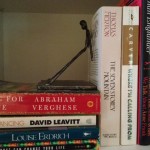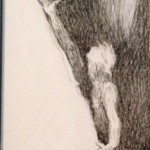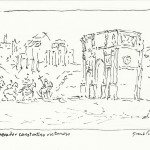 Smart women love to read, and our solitary reading experiences are enhanced when we discuss literature as a community. While we explore fundamentals such as character, theme, plot and style, our conversations really come to life when we examine an author’s attitude toward his or her subject.
Smart women love to read, and our solitary reading experiences are enhanced when we discuss literature as a community. While we explore fundamentals such as character, theme, plot and style, our conversations really come to life when we examine an author’s attitude toward his or her subject.
In two powerful, incisive short stories, “What We Talk About When We Talk About Love” and “What We Talk About When We Talk About Anne Frank,” Raymond Carver and Nathan Englander respectively give us startling, provocative views of love and marriage. These works expose a truth about the most intimate of relationships—that while they can be deeply satisfying, there are also unspoken, darker understandings that surface under certain circumstances (and these authors create the precise situations for these to unfold).
What we might suggest as a book club ‘assignment’ would be to read these two stories side by side and ask why Englander chooses to build a story upon Carver’s theme and structure. He follows Carver’s patterns quite closely with a clear intention. Your group can consider:
- What are the similarities and differences between the two?
- What are the authors saying, and what does Englander add to Carver’s classic story?
- How do they present the ideas of love and marriage, and how are these emotions tied up with issues of power, control, and the ‘truth’?
What we think you might discover is that what we talk about when we talk about books is also much more complex than just what is on the page. As many women will attest, we learn so much about one another through our explorations of fiction that it is impossible to limit our discussion to the book even when we discipline ourselves to stay on the topic. Infused in every comment about a text is a smart woman’s point of view, which reveals who she is, what she believes, and where she stands. This is the heart and soul of a book club.
So, take a look at the Carver and Englander. See what you think about these couples sitting around a table draining bottles of gin and vodka (and in Englander’s story, smoking a fair amount of pot). What happens when they loosen their collars a bit and get into the hard facts of life and love? And ultimately, how are we transformed by our own talks about books?
Perhaps there’s a story here.
 The New York Times critic Liesl Schillinger writes, “In
The New York Times critic Liesl Schillinger writes, “In 